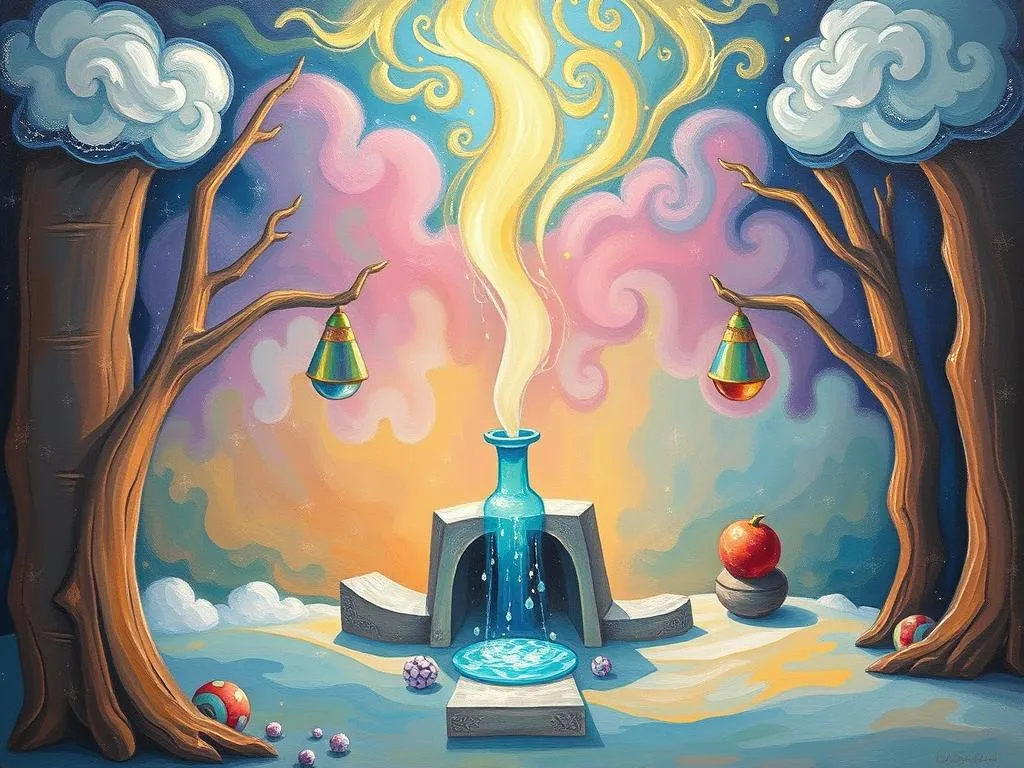
Have you ever woken up from a dream with a lingering sense of confusion, or perhaps even fear? Dreams have a way of weaving complex narratives that can leave us questioning their meanings long after we’ve awakened. They are more than just a jumbled sequence of thoughts; they can serve as windows into our subconscious, revealing deeper truths about our emotions, experiences, and desires. In this article, we’ll explore the rich tapestry of dream symbolism, examining its cultural significance, psychological underpinnings, and practical insights that can help you navigate your own dream experiences.
Understanding dreams is like peeling back layers of an onion; each layer reveals something new about ourselves. The symbolism can often feel elusive, but that’s what makes it so fascinating. As you read on, remember that your dreams are personal. They speak to you in a language that is uniquely yours, shaped by your experiences, emotions, and cultural background. So, let’s embark on this journey together and decode the rich symbolism that lies within your dreams.
Whispers of the Soul: Unpacking Dream Symbols
Every dream is language, a dialogue between your waking self and your subconscious. At the heart of this dialogue are symbols—powerful representations of your thoughts and feelings that manifest in various forms. Understanding these symbols can provide profound insight into your inner world.
Take, for instance, the symbol of water. Water often represents emotions and the subconscious mind. When you dream of calm waters, it may signify peace and harmony in your emotional life. Conversely, turbulent waters might indicate unresolved turmoil or emotional distress. In many cultures, water symbolizes purification and rebirth, reflecting the potential for personal growth that can arise from confronting your emotional challenges.
Another potent symbol is the house. The various rooms within a house can represent different aspects of your psyche. The basement might symbolize hidden fears, while the attic could represent your aspirations or memories. If you dream of exploring a new room, it may signal that you are delving into uncharted territories of your personality or uncovering latent talents.
Animals are also rich in symbolism. A lion could represent courage and strength, while a snake might symbolize transformation or deception. The animal you encounter in your dream can reflect your own traits or the qualities you desire to embody.
Lastly, consider the symbolism of flight. Dreams of flying often evoke feelings of freedom and release. They can indicate a desire to escape from life’s burdens or to transcend your current limitations. However, if you struggle to fly, it may represent feelings of being trapped or hindered by external circumstances.
The Dreamscape: Stories in Motion
Let’s dive deeper into the world of dreams by exploring specific scenarios. Each dream scenario holds a unique narrative that reflects your current life situation, emotions, and aspirations.
Scenario One: The Recurring Nightmare
You find yourself back in high school, standing in front of a classroom full of peers, unprepared for a test. This dream can signify feelings of inadequacy or anxiety about being judged. It might reflect your fears of failure in your waking life, perhaps related to work or relationships. Recognizing this pattern can empower you to confront these insecurities head-on.
Scenario Two: The Lost Journey
In your dream, you’re wandering through a maze, unable to find your way out. This scenario often represents feelings of confusion or being lost in your waking life. It may signal a need for direction, and acknowledging this can inspire you to seek clarity and make more informed decisions about the path you want to take.
Scenario Three: The Power of Connection
You dream of reuniting with an old friend or loved one who has passed away. Such dreams can serve as a reminder of the unresolved feelings you may have regarding that relationship. They often provide comfort and closure, urging you to reflect on the lessons learned from those connections.
Scenario Four: The Falling Sensation
You find yourself falling from a great height, only to wake up just before you hit the ground. Falling dreams often represent feelings of loss of control or insecurity. They can emerge during times of transition or when facing significant life decisions. Instead of fearing these dreams, use them as an invitation to assess areas in your life where you may need to regain control.
Scenario Five: The Triumph of the Underdog
You dream of achieving a significant victory, such as winning an award or overcoming an obstacle. These dreams can be incredibly empowering, reflecting your aspirations and the potential you hold within. They often emerge when you’re working hard towards your goals, serving as a positive affirmation of your capabilities.
The Awakening: Embracing Transformation
Dreams are not just mere reflections of our subconscious; they can also be catalysts for personal growth and transformation. As you navigate through your dream experiences, consider the following insights to help you harness the power of your dreams.
First, keep a dream journal. Recording your dreams can help you identify patterns and recurring symbols over time. This practice not only aids in understanding your dreams but can also serve as a therapeutic outlet for processing your emotions. Write down the details immediately upon waking, as the vividness of your dreams often fades quickly.
Second, practice self-reflection. After analyzing your dreams, take time to reflect on how the symbols and scenarios relate to your waking life. Ask yourself questions like: What emotions did I feel during the dream? How does this relate to my current challenges or experiences? The answers can provide insight into your emotional landscape and guide you in making necessary changes.
Third, engage in creative exploration. Use your dreams as a source of inspiration for art, writing, or other creative endeavors. Channeling your dreams into creative outlets can be an effective way to process emotions and gain clarity about your feelings. It transforms abstract thoughts into tangible expressions.
Lastly, don’t shy away from seeking external guidance. Sometimes, discussing your dreams with a therapist or a trusted friend can unveil new perspectives and insights. They may help you see connections or meanings that you hadn’t considered, offering fresh avenues for exploration.
In conclusion, dreams are a profound aspect of the human experience, rich with symbolism and meaning. They serve as touchstones for our emotions and desires, encouraging us to reflect and grow. Remember, your dreams are personal, and their meanings are unique to you. As you venture into the world of your dreams, allow yourself the space to explore, reflect, and embrace the transformative journey that awaits.
Powerful Reflection: What if your dreams are simply the whispers of your soul, urging you to awaken to your true self? Embrace them, for they hold the keys to understanding your deepest desires and fears.







